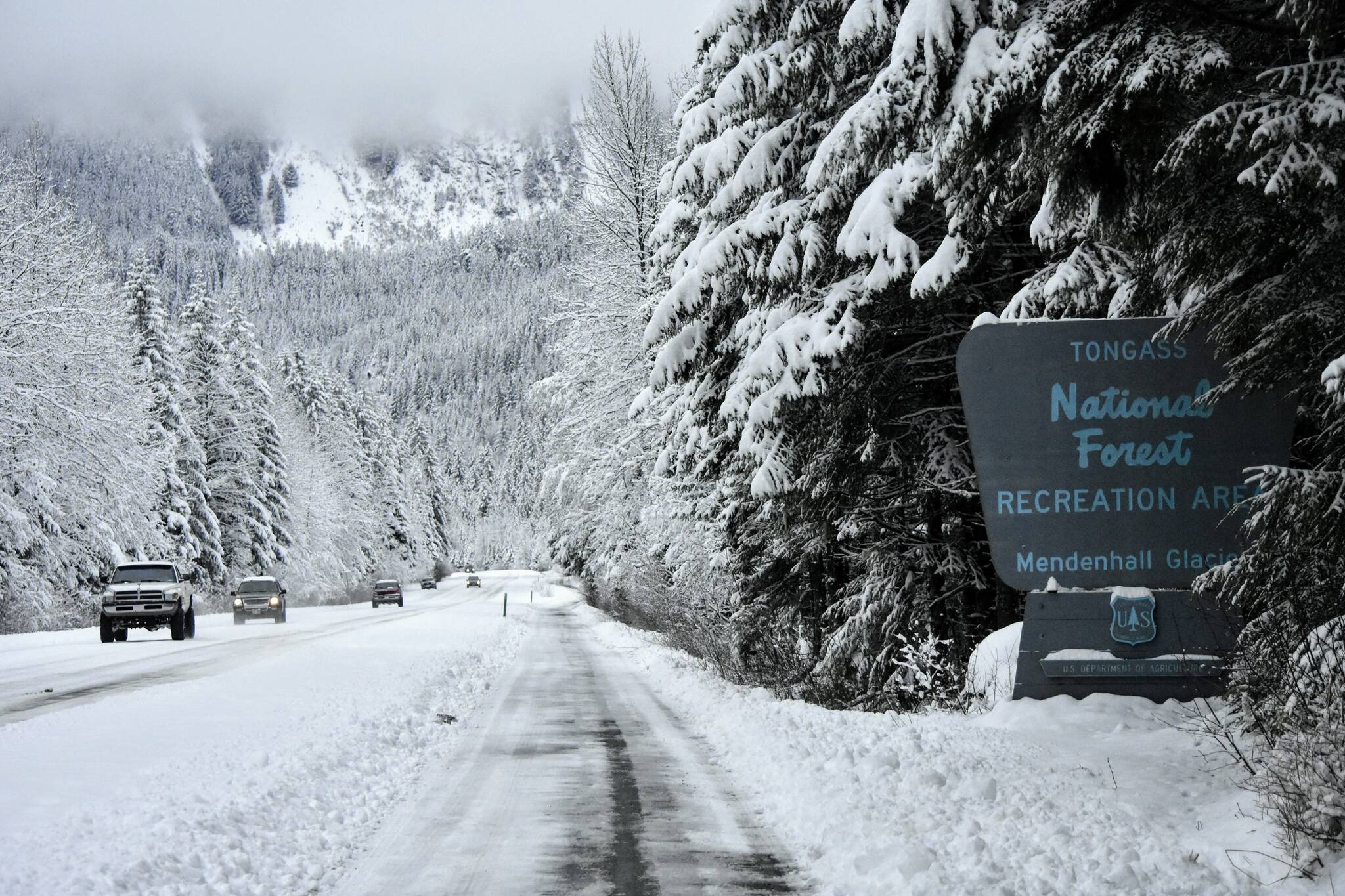The U.S. Forest Service is once again accepting public comment on the 2001 Roadless Rule on the Tongass National Forest, and for many Alaskans, it’s a familiar experience. The rule is favored by conservationists and some fishing groups who are wary of development in the nation’s largest forest. Critics argue the rule inhibits any development in the region, even civil projects that bring cheaper services to rural communities.
In 2020 following a meeting with Gov. Mike Dunleavy, the Trump administration announced it would lift the rule, a decision that was swiftly reversed by President Joe Biden within his first several months of office.
Conservationists lauded the decision, saying the protections were much-needed as the effects of climate change become more apparent.
“The Biden administration’s announcement (Thursday) marks a critical inflection point in the long history of the fight to protect the Tongass National Forest,” said Meredith Trainor, executive director of the Southeast Alaska Conservation Council, a Juneau-based environmental group, in a news release.
“Beginning Tuesday, we need both Alaskans and Americans across the country to show up once more to speak out on behalf of our forest,” Trainor said.
Gov. Mike Dunleavy released a statement criticizing the Biden administration for limiting economic opportunity in Southeast Alaska.
“Alaskans deserve access to the resources that the Tongass provides – jobs, renewable energy resources, and tourism,” Dunleavy said, “not a government plan that treats human beings within a working forest like an invasive species.”
Others, who say they want to see a more balanced approach to forest management, were frustrated by the news.
Robert Venables, executive director of regional development group Southeast Conference, told the Empire in an interview Friday multiple administrations had ignored options for a compromised approach.
“The last administration chose an all or nothing embrace,” Venables said. “(The Biden administration) could embrace compromise, but I don’t think anyone expects them to.”
Venables said he didn’t see anything preventing another administration from coming in and reversing the decision again.
“Nobody expects anyone to do anything except the opposite of what the last administration did, which is what the last administration did,” Venables said.
[Cruise critics reflect on shortened season]
The Biden administration has stated a commitment to environmental protections but has also sought to develop U.S. supply chains for mineral resources. Sen. Lisa Murkowski, R-Alaska, was a key negotiator in the recent infrastructure bill and her office said in a news release that legislation included language to improve the permitting process for critical mineral projects in Alaska.
The U.S. Department of Agriculture, which oversees the Forest Service, announced a 60-day public comment period on the proposed decision will open Nov. 23, and end Jan. 22, 2022. There was a similar public comment period before the 2020 decision to lift the Roadless Rule and the vast majority of public comments favored keeping the protections in place. During the consultation period, several Alaska Native tribal governments asked the Forest Service to delay the process and accused federal agencies of not engaging with tribal governments.
Public comment can be submitted to the Forest Service using the Federal Rulemaking Portal at regulations.gov or email sm.fs.akrdlessrule@usda.gov. Comments can also be submitted by mail to: Alaska Roadless Rule, USDA Forest Service, P.O. Box 21628, Juneau, Alaska, 99802-1628.
While it drew strong reaction, there’s still nothing in this decision to create permanent protections on the Tongass, said Kate Glover, attorney for environmental legal firm Earthjustice.
Glover said the Forest Service has also announced other policy shifts that may create more permanent protections on the Tongass and shift the way the forest is managed. The new Southeast Alaska Sustainability Strategy announced earlier this year was designed to shift management of the forest to be more in line with the economic realities of southeast Alaska, Glover said.
“It’s an administrative decisions and it can be reversed,” Glover said in an phone interview Friday. “But if (policy changes) are accomplished effectively it would be a real shift in how the Forest Service works in the region.”
• Contact reporter Peter Segall at psegall@juneauempire.com. Follow him on Twitter at @SegallJnuEmpire.

